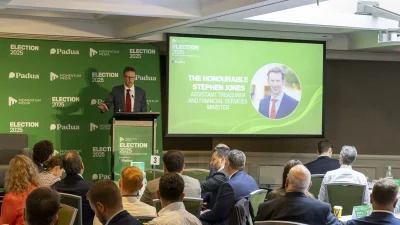When is a disclaimer not a disclaimer?



The decision to convict an NSW individual this week for unlicensed financial advice hinged on the use of disclaimers in a PowerPoint presentation.
John Louis Anthony Bigatton of Carss Park, NSW, pleaded guilty to one criminal charge in May 2024 relating to his role as national promoter of online cryptocurrency platform BitConnect.
On 15 July, ASIC announced that he had been convicted in the Sydney District Court for providing unlicensed financial advice contrary to section 911B(1) of the Corporations Act. He was released on a recognisance to be of good behaviour for three years.
Bigatton provided unlicensed and unauthorised financial advice when he promoted BitConnect in Australia in seminars and on social media between August 2017 and January 2018.
He provided financial product advice without holding an Australian financial services licence (AFSL) or authorisation to provide financial services on six instances at various locations around Australia through four seminars and two social media posts.
In the judgment, Judge Robert Newlinds SC said Bigatton relied on a PowerPoint presentation provided by BitConnect to give in the seminars that showed an overview of BitConnect and its operations. However, the offender manually edited the PowerPoint to insert a “disclaimer” and also routinely gave verbal disclaimers.
“The offender edited the PowerPoint presentation, and inserted a ‘Disclaimer’ slide, which would occasionally differ in form, but not in substance. The disclaimers stated that the information provided was not ‘financial advice’, that the presenter was ‘not a financial adviser, accountant or the like’. In one version of the presentation, there was also a no liability disclaimer.”
An example of the disclaimer:
“Disclaimer: The information provided is NOT financial advice. I am not a financial adviser, accountant or the like.
This information is purely from my own due diligence and an expression of my thoughts, my opinions based on my personal experiences, and the way I transact.
THIS INFORMATION IS PROVIDED FOR GENERAL INFORMATION
PURPOSES ONLY AND SHOULD NOT BE CONSIDERED PERSONAL ADVICE. Your money, your outlay, your risk. This presentation does not provide investing advice in any way shape or form. You will be solely responsible for any decisions you make. If you need to seek any advice, speak to your advisers, accountants or other professionals who you may be relying on for your wealth creation journey. Please do your own due diligence.”
In light of this, Bigatton argued that these disclaimers were an attempt by him to comply with financial services regulation and to discourage individuals from making investments on the basis of his recommendation alone.
“The offender submits that the disclaimers demonstrate firstly, that the offender was aware that he was operating in a regulated framework, secondly, that he was conscious to seek to comply with the laws and regulations, and thirdly, that he took positive steps not just to tell people that he was not providing financial advice, but to recommend to them as part of his overall advice that they do get financial advice from someone else.”
Judge Newlinds said there was “no doubt” that the documentary information provided was unlicensed financial advice and that Bigatton provided that advice when he was not licensed to do so, but the question to consider was whether the disclaimers affected this.
He said he was unconcerned as to whether the advice provided by Bigatton was dishonest, misleading or deceptive, purely whether it was unlicensed.
Judge Newlinds concluded: “I am not satisfied beyond reasonable doubt as to the Crown’s submission that the disclaimers were a cynical and deliberate ploy to cover up wrongdoing by the offender. However, I am also not satisfied on the balance of probabilities that the offender’s motives were as pure as he now contends them to be.
“Accordingly, in relation to the offender’s motivation for providing the disclaimers, I am not in a position to make any findings one way or the other apart from what the offender immediately conceded in his record of interview. The offender did know and understand that, absent his disclaimers, what he was doing was the provision of financial advice which was contrary to the law. He wrongly and, at least in my opinion, recklessly but honestly nonetheless, thought that the disclaimers allowed him to do the very thing the section prevents, that is to give financial product advice.”
He also noted the conduct involved a breach of trust as individuals were likely to believe they were receiving advice from a licensed or regulated individual. This was because Bigatton was introduced to them as someone “with the inside goss”, “a background in forex trading and stocks and shares” and “very knowledgeable in the crypto space”.
He said the offender was unlikely to reoffend and was already banned by ASIC from providing financial services until 31 August 2027.
Recommended for you
Despite industry criticisms, Financial Services Minister Stephen Jones believes the Labor government has moved the financial advice reform dial forward “significantly” during his term.
The Australian Institute of Company Directors has shared which issues are keeping financial services directors up at night, and how they compare to the sentiment of directors more broadly.
ASIC is seeking to publish firm-level data on the reportable situations and internal dispute resolution regime, in hopes that advice licensees will “lift their game”.
The Federal Court has appointed liquidators to wind up Falcon Capital and the First Guardian Master Fund, following an ASIC application.















